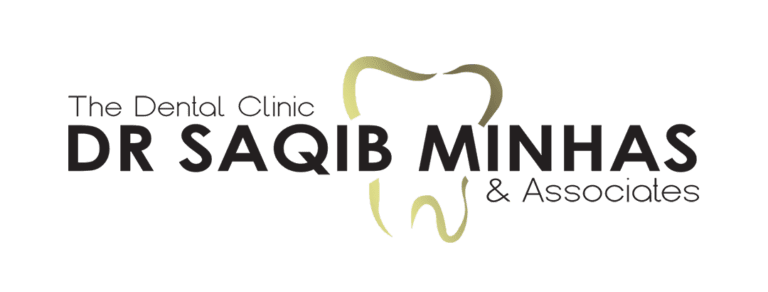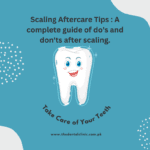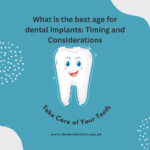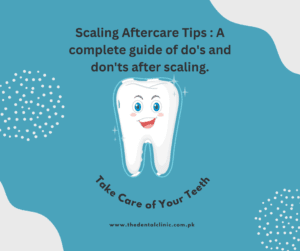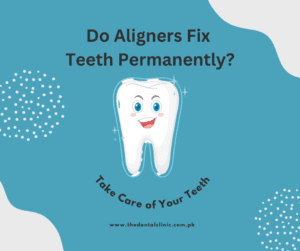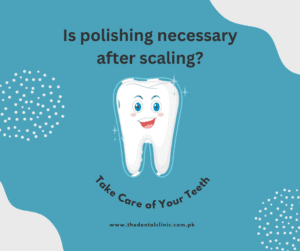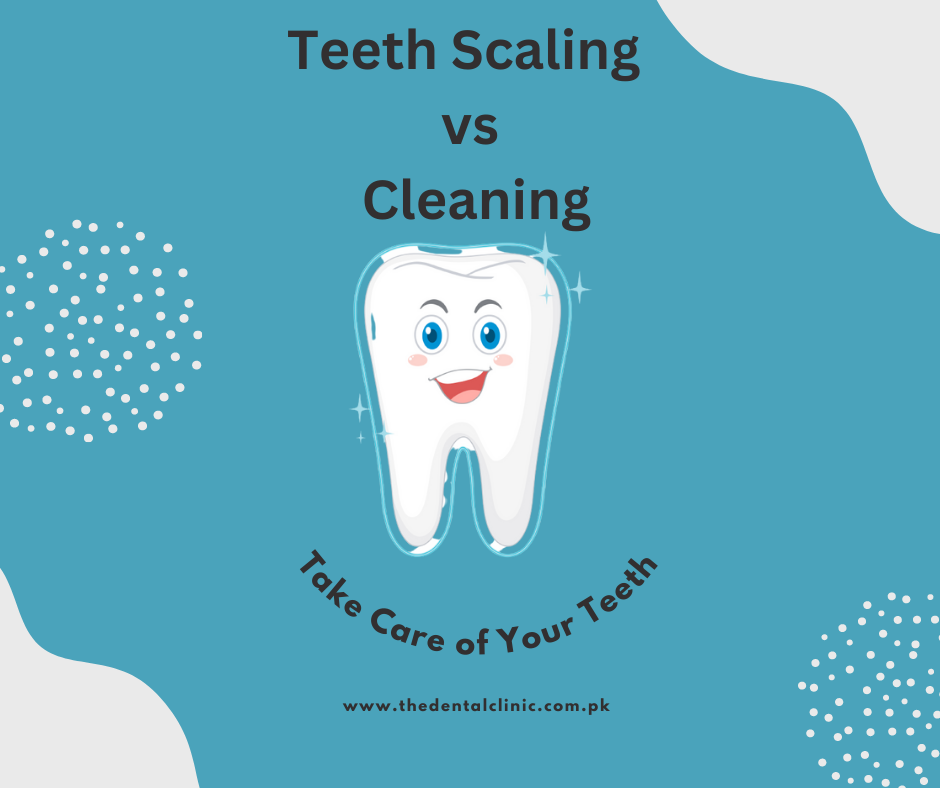
Teeth Scaling vs Cleaning: What’s the Difference and Which is Right for You?
Just like the human body, the mouth teams with bacteria and although harmless, it is the entry point to the digestive and respiratory tracts. Moreover, some of these bacteria can also cause disease.
Normally, bacteria are kept under control by the body’s natural defence mechanism and good oral health care. For example, brushing every day and flossing. However, without the maintenance of proper oral hygiene, the bacteria may reach levels that can cause oral infections like gum disease and tooth decay.
Furthermore, some medications like decongestants, painkillers, antihistamines, diuretics, and antidepressants can reduce the flow of saliva. Saliva neutralizes the acids produced by bacteria and washes away the food in the mouth, which helps in protecting the mouth from microbes that lead to disease.
Difference Between Teeth Cleaning and Scaling
There is a vast confusion between regular teeth cleaning vs scaling, or in medical terms; dental cleaning vs periodontal scaling. Both the procedures are very different and the reason behind performing each is also different. Regular teeth cleaning removes the formation of plaque and tartar on the tooth surfaces and above the gum. Moreover, tartar buildup is less in people who practice preventative measures and maintain their oral health. A dental intervention is not really required or needed. The procedure involves none or limited bleeding. However, regular cleaning polish does not remove bacteria from the mouth. Furthermore, it is done two to three times a year depending on the person’s oral health.
Whereas deep cleaning, which is also called periodontal scaling removes bacteria and tartar above and below the gum. However, the presence of bacteria may have an adverse effect on the immune system. The procedure is performed to administer periodontal diseases. For example, pocketing and spaces between the tooth and gum can lead to a loss in tooth support and structure. The symptoms of periodontal diseases are
- Receding gum line
- Halitosis
- Bleeding gums
- Tooth mobility
Periodontal scaling is done in two sittings with a gap of two to three weeks between the first and second procedures. Moreover, follow-up and maintenance appointments are recommended. The procedure is otherwise performed thrice or four times in a year.
Also Read: Is dental scaling necessary?
Who Needs Teeth Scaling?
Scaling and root planning is an intensive procedure that helps prevent gum diseases that are in their early stage and prevent them from worsening. Scaling allows the dentists to remove plaque under the gum line curing gum recession. It is important to know your symptoms so it can help prevent gum diseases in the future.
Teeth scaling is needed for the following:
Bleeding Gums
Bleeding is one of the earliest signs of plaque beneath the gum line and it happens during brushing or flossing. Even a drop of blood appears following your daily routine, it is a sign of bacteria living under the gum line due to the plaque deposit. Scaling can eliminate the plaque and brushing and flossing regularly after the procedure can prevent it from recurring.
Pocketing
Probing helps your dentist evaluate if you have to pocket around the teeth. The pockets around the teeth should be tight to hold the roots securely when you chew and bite. Most dentists recommend teeth scaling services in Karachi on teeth that have a 4mm reading during the check-up. Moreover, cleaning a root pocket that is more than 5 to 6 mm can prevent tooth and root damage.
Tissue Inflammation
Other than bleeding, redness and swelling around some teeth during the early stages can lead to the development of gingivitis. Although this is not as serious as abscess formation, it is an indication of bacterial infection and irritation of the gum tissue. Scaling removes the deposits and smoothens out the roots of the teeth.
Gum Recession
In gum recession, the pockets in the gums become deeper and you notice a visible shrinkage in the gum line. Gum recession means the patient should visit The Dental Clinic because it is caused by multiple serious health issues. Moreover, as you age, healthy gums age minimally, so if there is any recession, it can indicate the formation of pockets around the tooth line and roots.
Bone Loss
Adults need an x-ray to see the health of their jawbones and roots. If there is bone loss or detachment between the roots and jaw, root scaling can benefit.
Who Needs Teeth Cleaning?
Professional teeth cleaning is not only required for a bright smile, but it is also crucial to maintain a healthy smile and overall health. Insufficient oral hygiene can lead to various oral diseases. For example, gum disease. Moreover, although brushing and flossing are important, it is necessary to maintain cleanliness to some extent, making sure your mouth is healthy and clean.
Risk of Dental Infection is Reduced
Professional dental cleaning also reduces the risk of dental infections and diseases. A variety of tools are used by the dentist to help clean the teeth. Moreover, brushing and flossing alone cannot achieve that. Additionally, dental cleaning can resolve the issue of halitosis as well. Therefore, the longer you go about without seeing a dentist, the more build-up you will have on your gums.
Early Detection of Oral Health Problems
Getting professional cleaning done twice a year can increase early detection chances of oral health diseases. Most of the diseases are curable. Even cancer is treatable if it is detected at an early stage, which is only possible if you visit your dentist regularly for routine cleaning and check-ups. Moreover, early signs of broken fillings and misalignments are also detected, which is not possible with cleaning your teeth at home. Most oral diseases are not visible to the naked eye. Especially between areas that are hard to reach and require professional intervention.
Benefits of Teeth Scaling and Cleaning
Brighter and Shinier Teeth
Calculus build-up over the passage of time can make the teeth also look yellow. Professional scaling and cleaning can remove the hardened deposits on the teeth. Moreover, after professional cleaning teeth polishing service in Karachi is also provided by the dentist.
Gum Health
Calculus comprises bacteria that can cause infection and removing it reduces the risk of gum disease.
Fresh Breath
Your mouth will feel tremendously clean after professional cleaning, which is not possible by brushing your teeth at home.
Protection of Health
Gum diseases are linked with many serious health conditions, which are diabetes, dementia, cardiac diseases, and some cancers. Professional scaling and cleaning are easy ways to reduce the risk.
Prevention is Better than Cure
Regular appointments with the dentist for an oral checkup are cheaper than treating a disease.
Risks and Side Effects of Teeth Scaling
Scaling and root planning may be discomforting for many patients and to keep them relaxed, dentists use topical or local anaesthesia. It numbs the gums. Moreover, minor bleeding and swelling may also occur, but it subsides after a few days.
Other teeth scaling side effects include gum reattachment, recession, and nerve damage. Although the side effects are rare, pain and sensitivity are common after the procedure.
Risks and Side Effects of Teeth Cleaning
The side effects of teeth cleaning are sensitivity to hot and cold, soreness in the gums, gingival bleeding, and noticeable gaps between the teeth where the calculus was present.
FAQs
Is Teeth Scaling and Cleaning Painful?
It is not painful to remove plaque from the tooth surface. However, dental scaling involves the removal of plaque and calculus from the gum line. So, if you have more sensitive gums, you will want to speak to your dentist about pain management.
How often should I get my teeth scaled or cleaned?
It is recommended by dentists to get your teeth cleaned every six months, which is twice a year.
Can Teeth Scaling and Cleaning Damage my Teeth?
Healthy individuals should get their teeth cleaned twice a year because periodontal problems can cause tooth decay and gum infection.
Conclusion
In the ongoing debate of teeth scaling vs cleaning, it’s clear that both procedures are essential components of maintaining excellent oral health. The choice between the two procedures depends on your specific dental needs. Regular teeth cleaning is an integral part of preventive dental care, recommended at least twice a year for most individuals.
While scaling, on the other hand, is a more advanced treatment reserved for cases of tartar buildup and early-stage gum disease. It’s a deeper clean that ensures your gums and teeth remain free from harmful bacteria.
